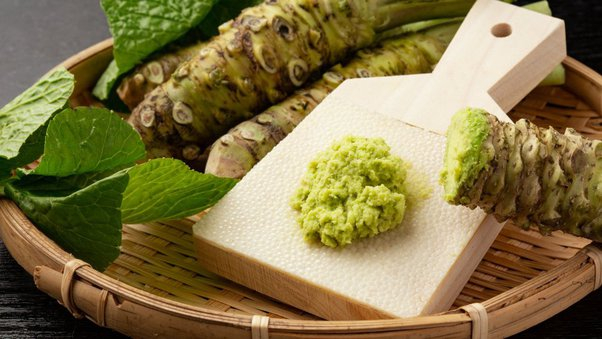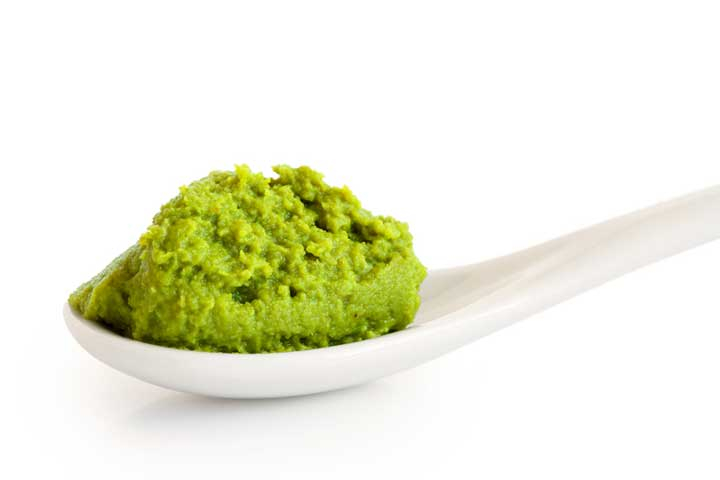Wasabi

Wasabi, often known as Japanese horseradish, is a plant in the Brassicaceae family, which also includes horseradish and mustard. A fragrant condiment prepared from its ground rhizomes is used on sushi and other meals. It has a flavor that is more akin to hot mustard or horseradish than chili peppers, and it excites the nose rather than the tongue. The majority of wasabi flavorings, on the other hand, are ersatz, consisting of horseradish plus food coloring. In Japan, the plant grows wild along stream beds in Himalayan river valleys. E. japonica 'Daruma' and 'Mazuma' are the two most common cultivars on the market, however, there are many others. Wasabi was first recorded as a meal in the 8th century AD.
Wasabi is a classic and common condiment in Japan. It has a great spicy flavor, and a powerful scent, and is quite healthy. Vitamin K1 is one of the numerous vitamins and minerals found in mustard. Green mustard (cooked) contains 593 mcg of vitamin K1 or 494 percent of the daily value.
In test-tube and animal research, the chemicals in wasabi have been examined for their antibacterial, anti-inflammatory, and anticancer activities. They've also been studied for their capacity to help with fat loss, bone health, and brain health. Although intriguing, human studies are needed to corroborate these findings before any inferences about wasabi's possible health benefits can be reached.











